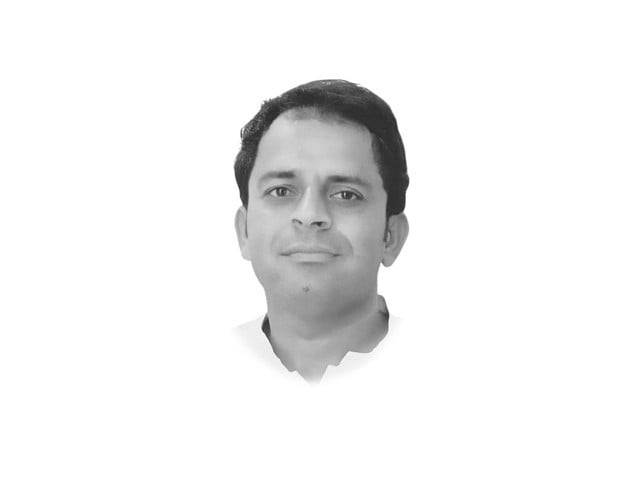Prominent, (under)privileged — and Pakistan
Once activists compromise their principles, many prominent figures receive perks and privileges.

Have you ever wondered why, despite the presence and activism of so many prominent humanists, philanthropists, journalists, commentators, analysts, bureaucrats, writers, reformists, nationalists, democrats, defenders, civil society activists, clerics, benefactors, pirs, feminists, liberals, centrists, rightists and leftists, the country and its people — in contrast to these figures and their patrons — descend into the quagmire of crisis and despondency by the day? The suggestive question points towards a peculiar and parasitic practice prevalent in Pakistan.
As a rule of thumb, politicians, clergy, artists, literary figures, musicians, journalists, writers, nationalist and religiopolitical leadership, philanthropists, intellectuals, empathetic individuals and altruists — driven by pure intentions, unwavering integrity and heartfelt empathy — transparently garner informed public trust and use it selflessly to alleviate the people's sufferings.
However, prominence "inherited" or achieved through hypocrisy, exploitation of public ignorance, innocence, desperation, or even initial genuine efforts often costs both the public and the cause. This phenomenon thrives in Pakistan not by incident, but by default.
Throughout the country's history, martial laws and successive hybrid regimes have pursued exclusive policies to perpetuate the status quo, leaving behind an overwhelmingly marginalised population trapped in the ruthless grip of their extensions — so-called prominent figures cloaked as champions of the public cause.
Most champions of social justice or public good tactfully and hypocritically cultivate paradoxical outcomes, prospering — along with their patrons — at the expense of the very people or causes they claim to advocate for. By seemingly advocating for political, democratic, human and women's rights, equality, literacy, employment, law and order, or even divine salvation, they reinforce the interests of stakeholders, including themselves, alongside perpetuating the issues and violations that afflict the public.
Activism against public issues is not aimed at their resolution but at capitalising on them through strategic bargaining with relevant segments of the status quo. Once activists compromise their principles, many prominent figures receive perks and privileges, ultimately prostrating themselves before their benefactors and acting as paid tools against the vulnerable public.
Subsequently, these co-opted figures protect their interests and those of the status quo, exacerbating the challenges faced by marginalised communities and the causes they feign to support. They achieve such results by fostering false hope, providing misleading justifications and interpretations, and seizing control of the genuine efforts of those aggrieved.
Most prominent personalities and intellectuals who appear to embody public empathy are often, in reality, accustomed to or implicitly mandated to serve their patrons and themselves. This makes integrity, morality, the written and spoken word, conscience, religion, public issues and marginalisation, democracy, national security, empathy and public trust some of the most lucrative commodities or abstractions, often paid in the currency of inflated envelopes, plots of land and positions of power.
As the plight of oppressed and ignorant people becomes a source of business, fame and riches for many of their champions, how can the intelligentsia act against their vested interests and those of the elitist status quo? Sindh stands out in the country due to its severe misgovernance and high levels of marginalisation. It thus harbours many notoriously prominent who trade people's trust and rights for their vested interests.
In a society where integrity, rationality, honesty, truth and genuine empathy are met with dejection, desperation, deportation, accusations of treason, heresy or threats to national security, who would dare to uphold and practise these values? However, there are still a few who, despite all odds, selflessly and altruistically stand with the aggrieved and offer a flicker of hope.















COMMENTS
Comments are moderated and generally will be posted if they are on-topic and not abusive.
For more information, please see our Comments FAQ